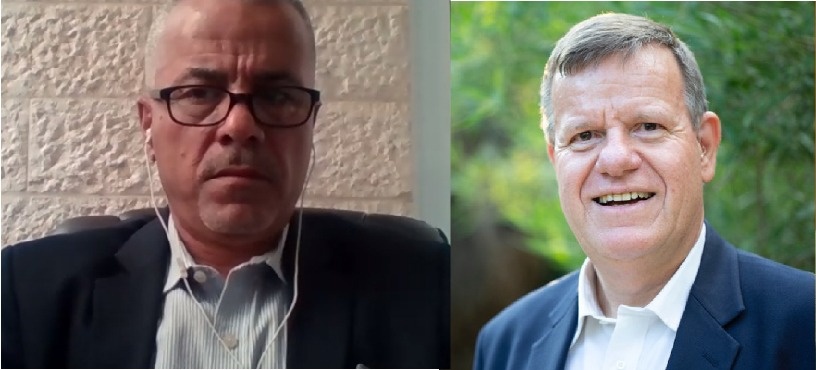In view of the ongoing restrictions with respect to international travel and in-person meetings, during 2020 and 2021, the Global Network of Experts on the Question of Palestine (GNQP) has held online meetings through a number of roundtables, each focusing on a specific theme introduced by a member of the Network. The six events, taking place from November throughout the first half of 2021, are moderated by Dr. Lex Takkenberg, a member of the Network’s Steering Committee.
On April 26, 2021, the Global Network on the Question of Palestine (GNQP) held its fifth roundtable on the Palestinian Elections. The session discussed the position of the competing Palestinian parties and the Israeli occupation authority’s position on the Palestinian elections, including in light of the recent demonstrations in East Jerusalem. The session was introduced by Dr Hassan Ayoub, Professor at the An-Najah National University, Department of Political Science. Ayoub offered an analysis of the various parties and positions in the 2021 Palestinian elections (recently postponed by President Abbas) as well as the main issues at stake and expected developments including the situation in East Jerusalem. There was a general sense that the elections could be canceled or postponed.
The recent unrest in Jerusalem, and the victory that Palestinians had marked in resisting new Israeli attempts at shrinking Palestinians’ space in town (by closing access to the areas adjacent to Damascus Gate), someone observed, has reminded people that the occupation could and should be resisted. Therefore, this could be seen as putting pressure on the current Palestinian establishment, which many accuse not to do enough to challenge the Israeli occupation.
Participants agreed that while elections are an expression of the democratic process and therefore necessary, in the Palestinian context they raise some issues.
Prime concern, supported by various GNQP members, is that the elections are held under the framework of the Oslo Accords, which does not challenge the ‘captivity’ scheme of the occupation and the subjugation it imposes on the Palestinians. Discussions highlighted that the Oslo Framework has long proven unsustainable and inadequate to realize Palestinian rights. Accordingly, some argue, progress is only possible outside of it. Others were of the view that even a change of leadership in the Palestinian polity, reflecting democratic aspirations, would be a progression.
It was observed that despite the lack of enthusiasm for real change resulting from the coming elections, there is high interest in participating, noting that 50 percent of the Palestinian voters are youths who would vote for the first time.
There is a general concern for the political alternatives offered by the 2021 elections. Political programs and strategies should be the priority and this does not appear to have been the case. It was observed that both in the West Bank and Gaza, the electoral campaign and debate has focused on the personalities of those involved (e.g. Barghouti and Dahlan), rather than the various parties’ programs. Power and political personalities’ struggle have somewhat overshadowed the need for substantive electoral programs. The legitimate need of the people for meaningful, transparent elections that would reflect their aspirations and improve their life has, according to some, featured higher in slogans than in the various parties’ plans.
On a more general note, it was observed that the high number of parties concurring in the election, rather than an expression of pluralism, is in fact a reflex of the intimate fragmentation of the political scenery. Polls have revealed that following the announcement of the Naser Al-Qudwa and Marwan al-Barghouti’s alliance, no single party would likely win the parliamentary elections. So a variety of political coalitions would emerge, weakening the possibility of a unified Palestinian front, which many see as indispensable to challenge (and bring to an end) the Israeli occupation.
Another issue concerns the election arrangements, which much resemble those of the 2005 elections. Then, only a limited number of Palestinians living in East Jerusalem could cast their ballot in the city. This, and the enduring split between the Palestinian authorities in Gaza and the West Bank that initiated precisely following the 2005 elections, would most likely lead to further fragmentation within the Palestinian political regime.
Thinking of the Palestinian people at large and the effect that the elections in Palestine have on them, it was observed that while Palestinian elections have given a sense of ‘democracy’ within Palestine (e.g. in 2005), they have never been truly representative and the participants raised a question about possible alternatives.


